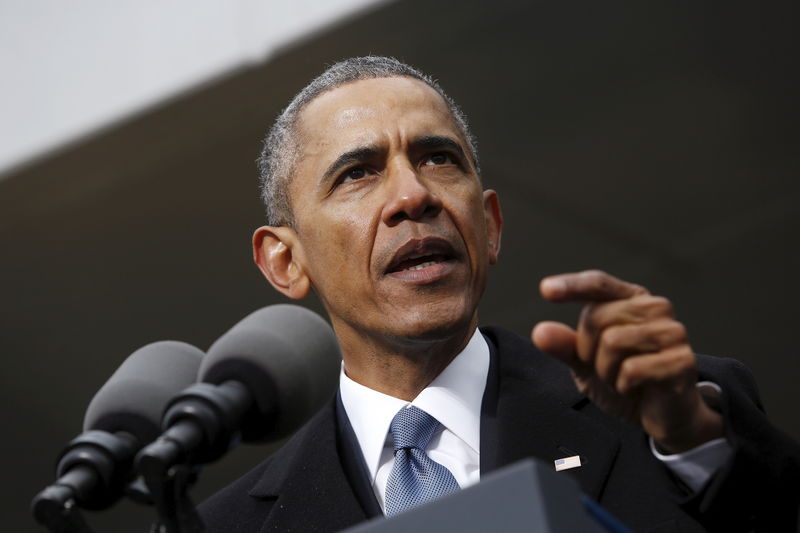By Roberta Rampton and Arshad Mohammed
WASHINGTON (Reuters) - The United States announced on Tuesday it was lifting its hold on the supply of military equipment to Egypt, which was frozen when the military took power in Cairo nearly two years ago.
The White House said President Barack Obama was freeing up the equipment and making other changes to military ties with Washington's long-time ally to support U.S. interests while encouraging Egypt's political reforms.
Obama directed the release of 12 Lockheed Martin (NYSE:LMT) F-16 aircraft, 20 Boeing Harpoon missiles, and up to 125 M1A1 Abrams tank kits made by General Dynamics (NYSE:GD), National Security Council spokesperson Bernadette Meehan said.
This was "in the interest of U.S. national security," she said.
The decision was announced after a telephone call between Obama and Egyptian President Abdel Fattah al-Sisi in which they also discussed the turmoil that is gripping the region.
Egypt, which has worked with the United States on Middle East peace moves, is emerging from a period of domestic upheaval and is engaged in several regional conflicts, including in neighboring Libya, and fighting Islamic State militants at home.
Sisi is leading an initiative to form a unified Arab military force in the region to confront Iranian-allied rebels in Yemen, and other threats.
The White House said Washington would "modernize" the way it provided military aid to Cairo to focus on counter terrorism, border security, maritime security and Sinai security, where Islamic State militants have been active.
"In this way, we will ensure that U.S. funding is being used to promote shared objectives in the region, including a secure and stable Egypt and the defeat of terrorist organizations," Meehan said in a statement.
Obama told Sisi he would continue to ask the U.S. Congress for $1.3 billion in military aid for Egypt per year, but said the United States would stop allowing Egypt to buy equipment on credit starting in fiscal year 2018, the White House said.
The deals for the released equipment were paid for long ago, so were not expected to have much impact on the companies.
GROWING ANIMOSITY
Egypt has been the second-largest recipient of U.S. foreign aid since its peace treaty with Israel in 1979.
Aid was frozen after the Egyptian army overthrew former President Mohamed Mursi. Obama resisted calling that a coup because it would have resulted in aid being cut completely.
Some restrictions were relaxed last year, but Congress made aid dependent on the U.S. Secretary of State certifying that Egypt was taking certain steps to govern democratically, a delay which angered the Egyptian government.
"The animosity had been growing because of an Egyptian sense that they were at a point of mortal peril and we were engaged in academic games about modifying assistance programs," said Jon Alterman, director of the Middle East program at the Center for Strategic and International Studies think tank in Washington.
Secretary of State John Kerry is expected to tell Congress within the next two weeks that the aid is in the U.S. national security interest, even though he will not make the "democracy certification," a senior administration official said.
Representative Mac Thornberry, the Republican chairman of the House of Representatives Armed Services Committee, welcomed the decision.
"We encourage the government of Egypt to continue its democratic process. But Egypt is also a strong regional ally. Maintaining that relationship must be a priority for the U.S.," Thornberry said in a statement.

Rights activists expressed concern. Resuming full military aid would send a dangerous message that human rights were not a priority concern for the United States, said Neil Hicks, a director at Human Rights First.